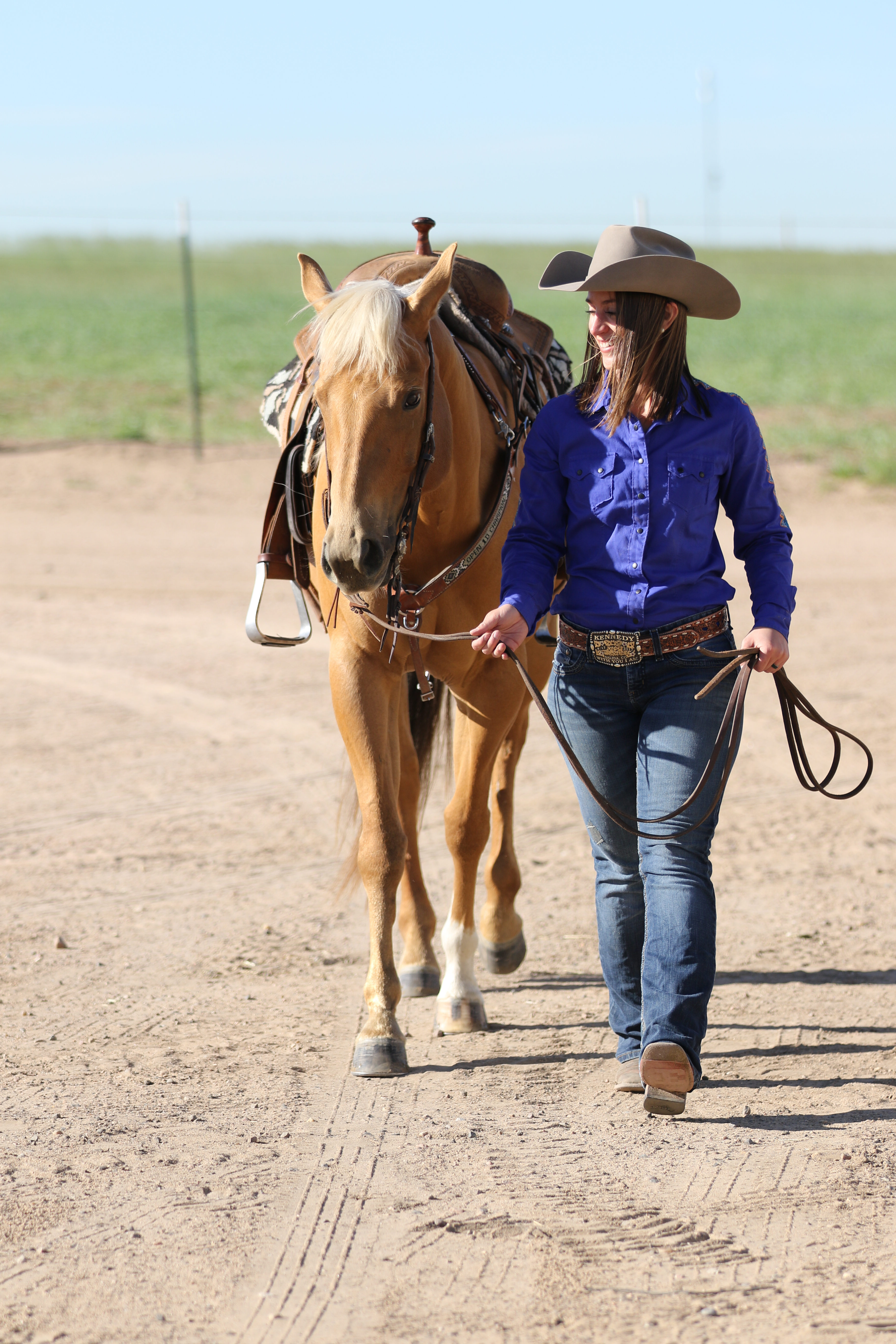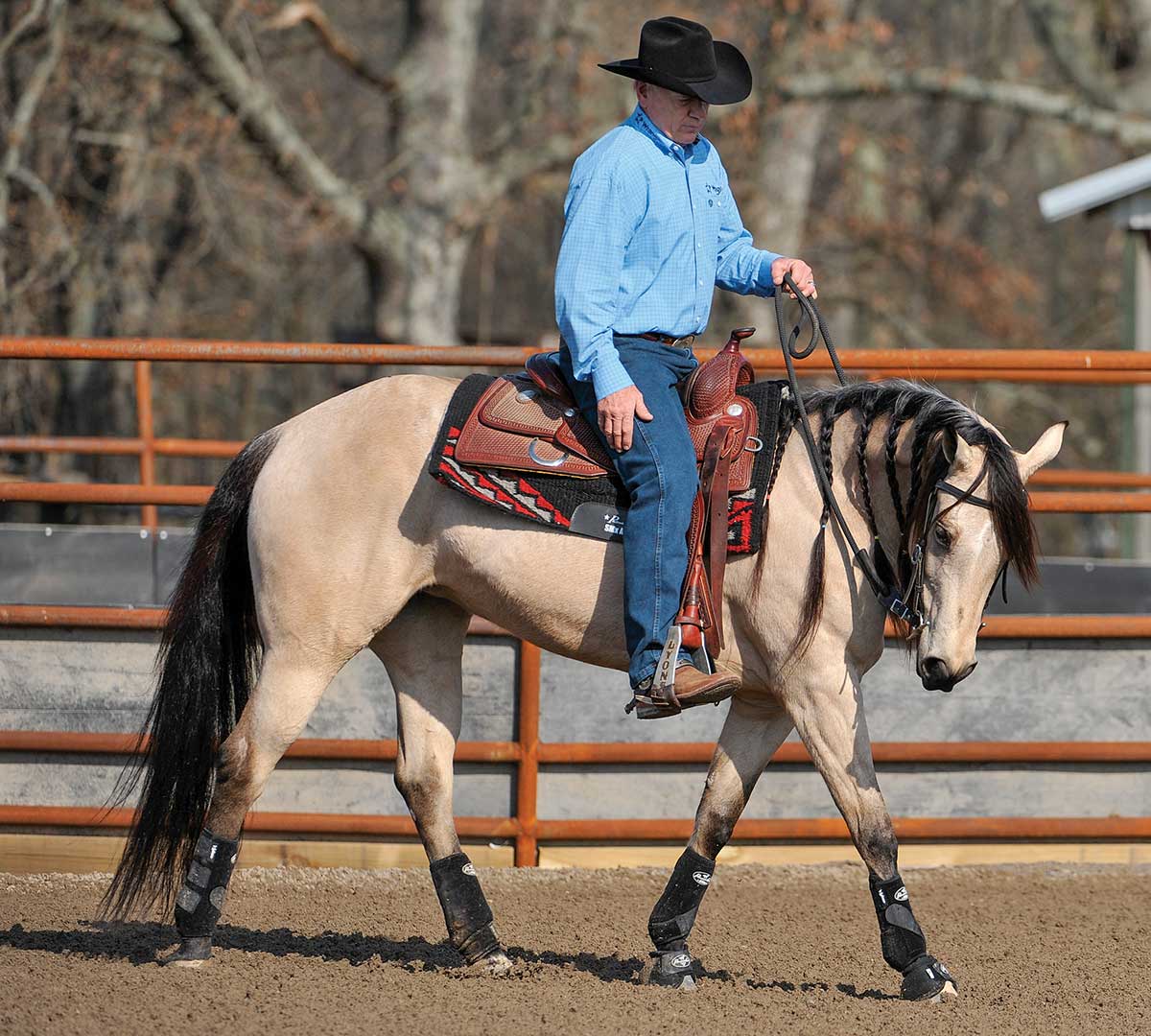“LADIES’ HORSE.” “PREFERS MALE RIDERS.”“HATES MEN WITH A PASSION!” These descriptions, all taken from real Internet ads or Web sites, are but a handful of the ways we humans describe a phenomenon that might be called gender bias in horses. The notion that some horses prefer to be handled by men (or by women) is widespread among horse owners.
[READ: 3 Rules for Dealing With Quirky Horses]
But are such preferences real, or imagined? If real, where do they come from? We turned to equine behaviorists and experienced trainers and nonpros to find out. We asked if they’d observed this effect in their own or others’ horses, and what might cause such tendencies. What we learned shed interesting light on equine nature—and on our own.

NURTURE AFFECTS NATURE.
One potential cause of a horse’s dislike for one gender or the other is a history of abuse or mistreatment by someone of that gender, usually in the horse’s early years. If the horse was mistreated by a man, for example, then it may come to fear all men. But sometimes the negative association is to something other than the person’s maleness or femaleness, even though we perceive it that way.
[READ: Research Shows How Smart Your Horse Is]
“If the person or people who mishandled the horse always wore a cowboy hat, then the horse might make the association to the hat rather than to gender, per se,” observes Katherine Houpt, VMD, PhD, of Cornell University’s Animal Behavior Clinic. Then, too, it can be the person’s style of interaction that a horse is actually responding to.
Sue McDonnell, PhD and head of the Equine Behavior Lab at the University of Pennsylvania’s New Bolton Center, says that in her work with stallions, women often seem to do better than men. “Usually the specific issue is getting into or avoiding a battle with the stallion,” she says. “Many women appear to be less threatening to stallions, and less likely to try to muscle them around. As a result, they’re less likely to inadvertently provoke a fight.”
Lorna Neel of Millsap, Texas, believes “it’s your demeanor, not your sex, that counts.” A non-professional with 20 years’ experience showing Paints and Quarter Horses in cutting, reining, and working cow horse competition, Lorna is the wife of Tom Neel, a trainer. “If you can generalize, a lot of men tend to be more aggressive, while women tend to be more in tune with feelings—more intuitive,” she says. “We’ve had horses here that supposedly don’t like men, yet when Tom finds the right approach for each individual horse, it’s no longer a problem.”
Team H&R member Charlie Cole, who trains Quarter Horses at his Highpoint Performance Horses in Pilot Point,Texas, says an animal’s inborn personality has a lot to do with the equation. “Some horses are just more passive than others,” he notes. “People go wrong when they try to make a new horse fit their style, rather than figuring out what approach will work best with that particular horse. A more passive horse will need a softer approach—whether from a woman or a man.”
VIVE LA DIFFERENCE?
Ah, but those stereotypical differences between men and women do play a role, insists Robert M. Miller, DVM, coauthor of The Revolution in Horsemanship and What It Means to Mankind, (The Lyons Press, 2005). Miller first became aware of people’s perception of gender bias in their horses in the early years of his veterinary practice, in the 1970s. “An owner would tell me, ‘He’s afraid of men,’”Miller recalls. “At first I was irritated, wondering why these horses just weren’t better trained. Then gradually I began to realize that because, generally speaking, a man’s stance, voice, and walk tend to be more intimidating than those of a woman, a sensitive horse is going to naturally be more fearful around a man.”
Miller clarifies his theory by sharing the gist of a chapter he’s currently writing for We Don’t Whisper, a follow-up to his first book. “Horses don’t fear predators; they fear predatory behavior. This explains why you’ll see zebras grazing within sight and smell of lions—resting lions, that is. As soon as the lions get up and start stalking, the zebras react immediately. “Horses are the same,” he continues. “So because much of what’s considered ‘masculine’ behavior is typically more assertive—a projecting voice, a determined gait—horses may perceive men as more predatory than women.”
[READ: Under-Saddle Equine Aggression]
FOLLOW THE LEADER
Added to all this is the training factor. Some experts believe training—or the lack of it—is at the root of much of what’s perceived as gender bias. “So-called gender bias comes up a lot in my clinics, and I believe it’s an excuse for poor or inadequate training,” says successful clinician John Lyons.

”Clinicians like me routinely see horses for the first time and work them in front of audiences. If gender bias were a significant factor, you can be sure we’d be asking about it in advance. But as far as I know, no clinician screens for gender bias— it’s just not that important. “More than once,” he adds, “a horse that the owner said was afraid of men will, by the time I’m done working it, come to me more readily than to his female owner.
Horses live in the moment. They’re more tuned in to what this person, at this moment, is doing, rather than to what similar people have done in the past. That’s why good clinicians can make a change in a horse in two and a half hours.” As for the horse that needs a man to be ridden or handled to best effect, noted horsewoman Sheila Varian says, “Show me that horse!” The Arabian breeder and trainer from Arroyo Grande, California, says that, in her opinion, unless a horse has been abused, it’s unlikely it has a true gender bias.
“All a horse really wants is a good, honest leader who gives clear instructions,” says the horsewoman, who starts young horses and handles stallions. “I believe many horses show anger as a result of being put in the position of having to be the leader themselves, and they don’t like that. A horse is happier being educated to be a willing partner who will follow your lead—whether you’re male or female.”
[READ ABOUT: Horse Behavior]
THE ‘PROJECTION’ FACTOR
Then, too, people sometimes interpret a horse’s behavior a certain way because of a pre-existing belief. They “project” a gender bias onto their horses. “I think it’s more in people’s heads than anything else,” says Cole. And such beliefs can influence equine behavior.

“There’ve been many instances where I thought the perception of bias did contribute to the problems,” observes McDonnell.
Obviously, to know which factor or combination of factors is in effect for any given horse requires thoughtful analysis of that animal’s history, training, and personality. And then, as with so many equine behavior challenges, good basic training is the best remedy.
“We’ve had a few horses come from other barns that seemed a little leery of men,” says Team H&R member Robin Gollehon, who with her husband trains Appaloosas and Quarter Horses in Trafalgar, Indiana. “But we didn’t change our basic program specifically for that. We always treat horses as individuals, and seek what works best in each case. That seemed to solve the problem for most of the so-called ‘biased’ horses.”






